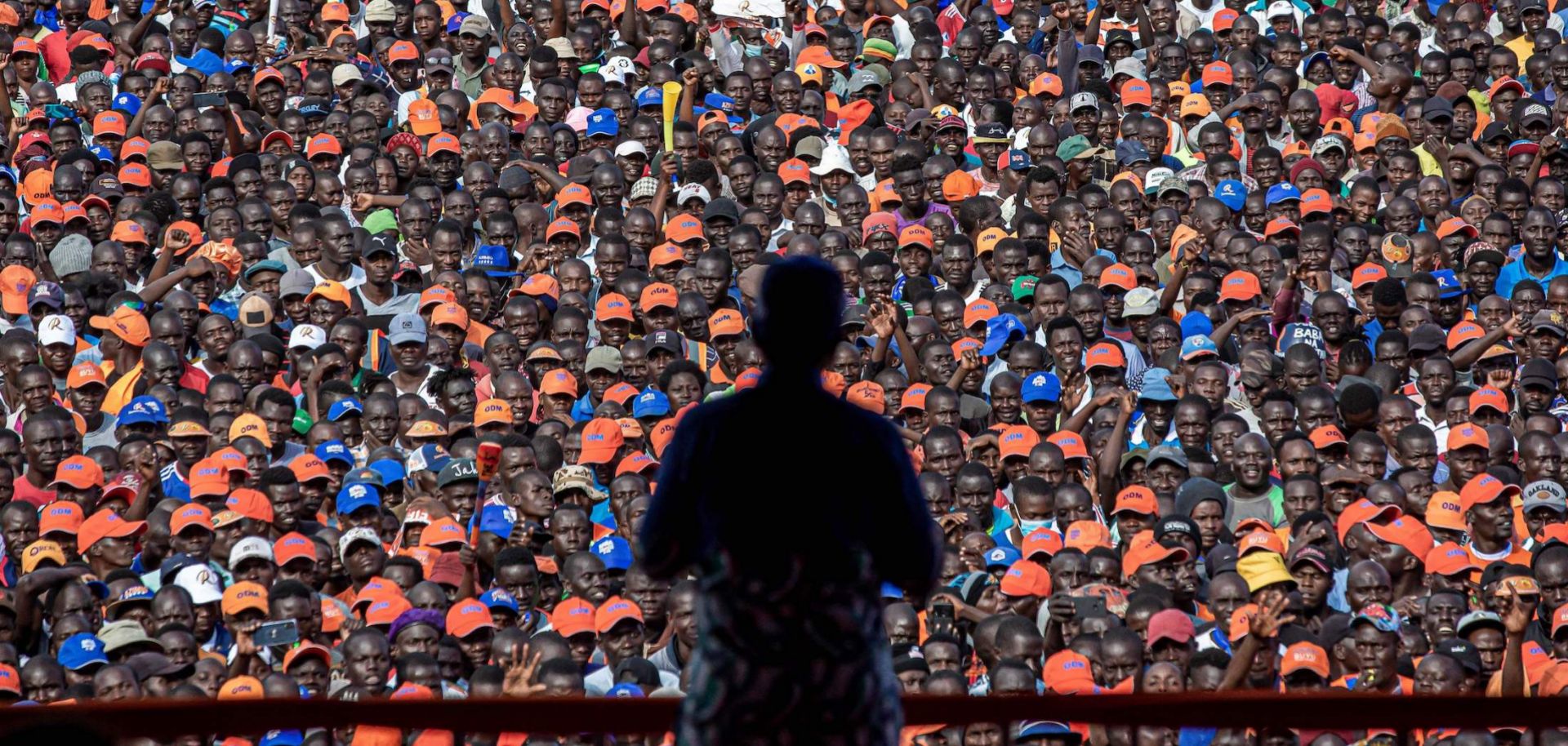Neither of Kenya's presidential candidates has proposed a feasible plan to tackle the country's mounting debt burden, increasing the probability that the country's next president will be forced to abandon social spending commitments and pursue fiscal consolidation and/or debt restructuring, or else face an economic crisis. In the lead-up to Kenya's Aug. 9 general elections, the two leading candidates, Raila Odinga and William Ruto, have proposed opposing measures to address Kenya's mounting debt burden. Odinga, a political ally of current President Uhuru Kenyatta and a former prime minister, favors debt restructuring with the International Monetary Fund (IMF) while simultaneously increasing spending. Meanwhile, current Deputy President Ruto says Kenya can pay its debts without external support, advocating for reduced borrowing and increased tax revenue to meet rising debt servicing costs while also increasing social spending. Neither Ruto nor Odinga's economic commitments are feasible in their entirety, but Kenya's imminent serving costs...

